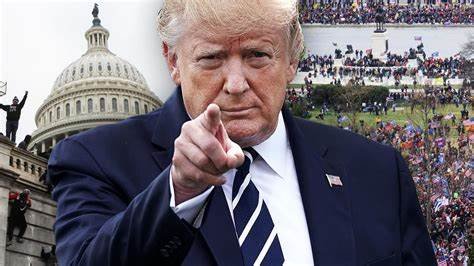In a stunning decision that has reverberated across political, legal, and technological landscapes, former President Donald Trump has officially pardoned Ross William Ulbricht, the mastermind behind the infamous dark web marketplace, Silk Road. Ulbricht, who had been serving a double life sentence plus 40 years without parole, walked free after more than a decade in federal custody. This decision marks the culmination of years of advocacy by libertarian groups and civil liberties organizations who argue that his punishment was excessive and politically motivated.
Trump took to his Truth Social platform to announce the pardon, stating, “I just called the mother of Ross William Ulbricht to let her know that in honor of her and the Libertarian Movement, which supported me so strongly, it was my pleasure to have just signed a full and unconditional pardon of her son, Ross.” The statement, both celebratory and defiant, reignited discussions about the balance between justice, punishment, and freedom in an increasingly digitized world.
This pardon is the fulfillment of a promise Trump made during the 2024 Libertarian Party National Convention. Addressing a crowd of fervent supporters, Trump vowed that, if elected, he would ensure Ulbricht’s release, calling his sentence “a travesty of justice.” At the time, Trump emphasized the broader implications of Ulbricht’s case, tying it to issues of government overreach, the role of cryptocurrencies, and individual liberties. His decision to pardon Ulbricht has now been celebrated as a significant victory by the Libertarian National Committee. Chair Angela McArdle referred to Ulbricht as “a libertarian political prisoner for more than a decade,” a sentiment echoed by numerous activists who view him as a symbol of resistance against an oppressive legal system.
Ross Ulbricht, operating under the pseudonym “Dread Pirate Roberts,” launched Silk Road in 2011, an underground marketplace that utilized Bitcoin to enable anonymous transactions. The platform became a hub for trading illegal drugs, weapons, counterfeit documents, and other contraband, amassing nearly a million users globally. By its peak, Silk Road had an estimated $1.2 billion in total transactions, a staggering figure that underscored its prominence and reach. While proponents of the platform claimed it was a step toward free-market innovation, law enforcement agencies painted a darker picture, labeling it as a breeding ground for crime and societal harm.
Ulbricht’s arrest in October 2013 followed a sophisticated FBI operation that tracked him through his email address. In 2015, he was convicted on charges including drug trafficking, money laundering, and computer hacking. Prosecutors argued that Ulbricht’s actions contributed to multiple overdose deaths and widespread cybercriminal activity. During sentencing, then-U.S. Attorney Preet Bharara stated that “Ulbricht was a drug dealer and criminal profiteer who exploited people’s addictions and contributed to the deaths of at least six young people.” The severity of the sentence, however, sparked global debate, with critics arguing it was disproportionate compared to other cybercrime cases.
Trump’s decision to pardon Ulbricht has drawn sharp criticism from legal experts, law enforcement officials, and political opponents. Many argue that the pardon undermines years of work by prosecutors and investigators who sought to hold Ulbricht accountable for the far-reaching consequences of Silk Road. The Justice Department had previously described the platform as “the most sophisticated and extensive criminal marketplace on the Internet,” warning that its impact extended far beyond its digital confines. Critics have labeled the pardon as a dangerous precedent that could embolden other cybercriminals and complicate efforts to regulate online marketplaces.
Despite the backlash, Trump defended his decision, calling the legal system’s handling of Ulbricht’s case “a gross miscarriage of justice.” He accused the same officials involved in Ulbricht’s prosecution of political bias, suggesting their actions were part of broader efforts to undermine his presidency. These statements have only fueled the controversy, further polarizing opinions on an already contentious issue.
Ulbricht’s release has also reignited broader conversations about the dark web, the role of cryptocurrencies, and the future of cybersecurity. Advocates for Ulbricht see his pardon as an opportunity to reevaluate the punitive measures often applied to cybercrimes, particularly in cases involving emerging technologies. Critics, however, warn that such leniency risks encouraging the proliferation of illegal online activities.
As Ross Ulbricht begins the next chapter of his life, the world remains divided over his legacy. For some, he is a visionary whose ideas challenged the status quo and pushed the boundaries of technological innovation. For others, he is a criminal mastermind whose actions exploited vulnerabilities in the digital age, leaving a trail of destruction in their wake.
This pardon has sparked fresh debates on whether Ulbricht’s punishment served justice or whether it exemplified the need for reforms in how cybercrime is prosecuted. While his release is celebrated by libertarians and civil liberties advocates, it has also raised critical questions about the role of government in regulating technology, the ethical implications of anonymous platforms, and the intersection of innovation and accountability.
Stay ahead of breaking news and gain exclusive insights into the stories shaping our world by subscribing to Innovation Times. From groundbreaking advancements in technology to the leadership decisions that redefine industries, we bring you the analysis that matters. Don’t miss your chance to stay informed—sign up today and join the conversation about the future of innovation.


